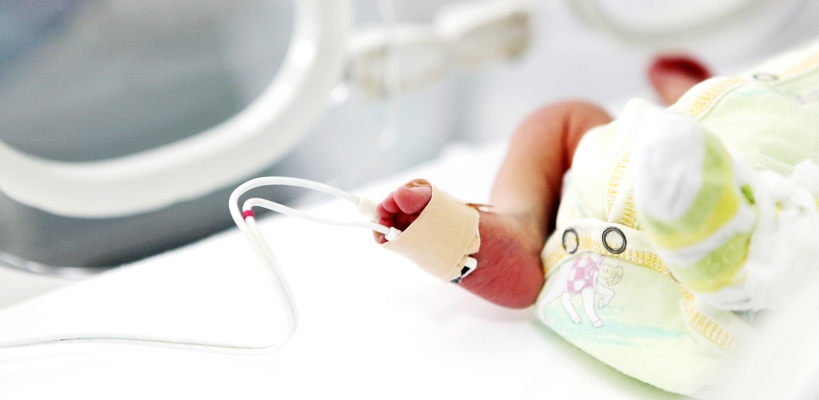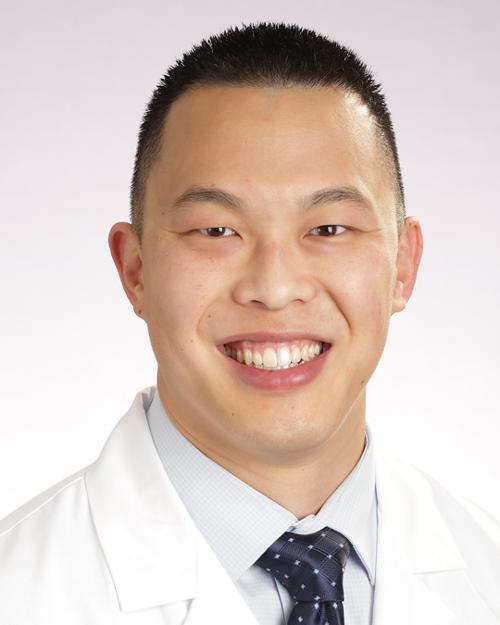
When Samuel Johnson was born at Norton Children’s Hospital with a diaphragmatic hernia, a highly trained and specialized team was ready.
“We have well-thought-out plans, a process in place to take care of children with diaphragmatic hernias,” said Ketan C. Mehta, M.D., of Norton Children’s Neonatology. “They are complicated cases and require aggressive and very thoughtful medical care.”
Diaphragmatic hernia is a rare condition affecting one in 2,200 births in which abdominal contents get into the chest through a defect in the diaphragm. Depending on how much of the bowels and abdominal organs encroach into the chest, lung development is hampered on that side, leading to problems with breathing. It requires emergent surgery to return the abdominal organs to the abdomen and repair the diaphragmatic defect.
The baby often has difficulty breathing immediately after birth. It is important to deliver these babies where the highest level of neonatal intensive care is available, such as Norton Children’s Hospital. As soon as the baby is born, a breathing tube is put in place. Another tube is placed from the nose to the stomach to decompress the bowel. The baby then is placed on a ventilator.
Samuel’s diaphragmatic hernia had been identified by prenatal ultrasound, and his delivery had been scheduled at Norton Hospital. He was then admitted to Norton Children’s Hospital, which has a Level IV NICU.
Since the bowels are in the chest cavity in babies with diaphragmatic hernia, the lung on that side often is poorly developed and there is pulmonary hypertension, in which the blood pressure within the lung circulation is much higher than normal. This causes difficulty getting the necessary oxygen to the body.
Samuel received inhaled nitric oxide to help with reducing the pulmonary hypertension and allowing more oxygen to get into his blood.
“When medical therapy fails, sometimes the only way to save a baby’s life is to do a surgical procedure,” Dr. Mehta said.
Within the first 24 hours after birth, a Norton Children’s surgical team cannulated the large vessels next to Samuel’s
heart and connected him to an ECMO machine, which circulates the blood outside the body, oxygenates it and returns it to the baby.
Once Samuel’s hypertension had been stabilized, his diaphragmatic hernia was repaired.
“He did incredibly well,” Dr. Mehta said. “Watching parents go through this is sometimes very, very challenging, and we do our best to support them through this process. It is definitely very rewarding to have a good outcome after a baby goes through such complex steps and procedures.”
Samuel initially was fed by feeding tube. Sometimes a gastrostomy, or G tube, is required to deliver nutrition directly to the stomach, because the pulmonary hypoplasia caused by the diaphragmatic hernia can cause newborns to breathe too fast to take a bottle. Samuel eventually did feed by mouth, so a G tube was not required, Dr. Mehta said.
Because these babies often have only one good lung, many have continued breathing difficulties and sometimes need a
tracheostomy before they go home. Samuel didn’t need one.
“He’s doing very well after discharge,” Dr. Mehta said, adding that Samuel is now 6 months old and continues to be followed by a high-risk clinical team.
Despite the complexity of Samuel’s care, Dr. Mehta said there was never any uncertainty about what the newborn needed.
During Samuel’s stay at Norton Children’s Hospital, he was cared for by a team of neonatologists, a highly skilled nursing staff, pediatric surgeons, respiratory therapists, nutritionists, pulmonologist, cardiologist, physical and occupational therapist, speech therapist specializing in feeding problems in babies, and an ECMO team.
“We have come up with a pathway to provide the best care for patients like Samuel Johnson,” Dr. Mehta said. “We have
an algorithm, with goals and parameters, and know what steps will take place.”
“This is important as we navigate through the complex initial days and strive to provide the best outcomes for these babies,” Dr. Mehta said.
Refer a patient
To refer a patient to Norton Children’s Maternal-Fetal Medicine, click here for the online referral form, make a referral through Epic or call (888) 4-U-NORTON.

